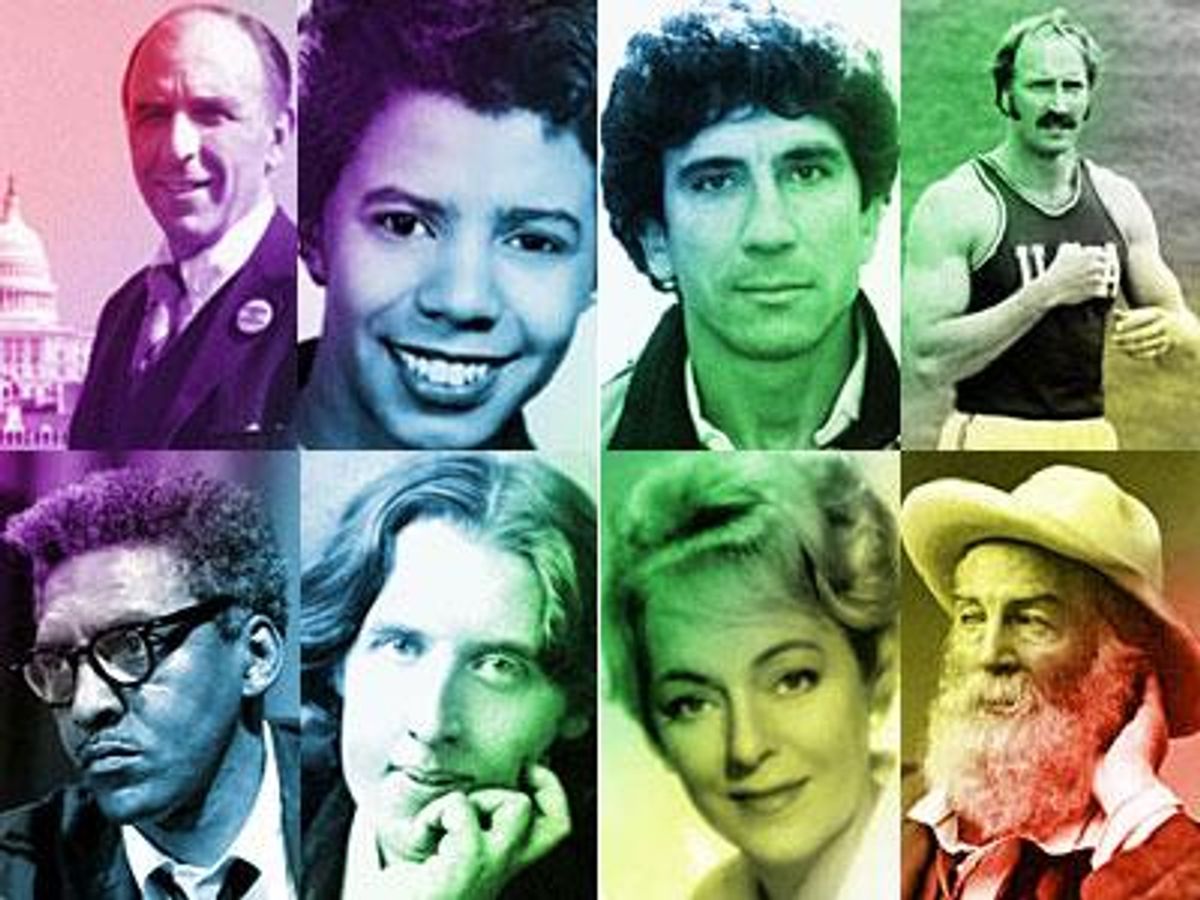For centuries the conventional narrative of history has been redacted to remove most any reference that might suggest a figure was anything other than heterosexual. What's worse, those whose non-hetero-normative sexuality/identity cannot be denied are generally eliminated altogether. As a result, our young people are forced to grow up without historically significant role models, enforcing the "otherness" with which they must contend.
The lack of LGBT contributions to shared human history in our classrooms leaves our children socially isolated, culturally marginalized, and vulnerable to self-esteem issues that flow from bullying. This same ignorance underpins every misery ever visited upon LGBT people. For it is not religion or politics that has been our true enemy - it is the lack of awareness of all the contributions that LGBT people have made to our society. And that has allowed irrational prejudices to masquerade as rational - even "moral" - thought.
To survive, LGBT people have had little choice but to conceal evidence of their own existence, which only reinforces the ignorance arrayed against them. When Chicago's Legacy Walk museum streetscape was dedicated in October 2012, it was the realization of a 25-year-long dream to create an outdoor commemoration of LGBT contributions to world history and culture that would side-step our redaction from history. Two years into this unique venture, the Legacy Project Education Initiative (LPEI) has convinced us that today's LGBTQ kids, in spite of the fact that they live in an ostensibly more accepting world, know little more than we did. This is because a lack of generational memory - stories passed from old to young to impart knowledge and sustain traditions - has kept us strangers to ourselves.
LPEI survey data reveals that LGBTQ teenagers hunger for information that will give them an historic context for their existence. High school field trips to view the Legacy Walk's unique bronze memorials - combined with LPEI's downloadable lesson plans, study guides, and multimedia - mean that age-appropriate, academically sound education materials are now available to inspire the next generation of our leaders through the challenges and triumphs of those who came before them. That college and university education departments have also begun to recognize this need by adding a visit to the Legacy Walk for pre-service teachers means a brighter future for all of us.
Our work with Illinois Safe Schools Alliance over the last two years has helped to expand LPEI's outreach to our state's Gay-Straight Alliance clubs, which used our education materials to prepare for today's Day of Silence. The accomplishments of people like social justice pioneer Jane Addams, civil rights icon Bayard Rustin, British mathematician Alan Turing, Congresswoman Barbara Jordan, U.S. poet Walt Whitman, transgender trailblazer Christine Jorgensen - and many others - can finally be viewed through the corrective lens of truth. Together, the 23 bronze biographical markers lining the half-mile Legacy Walk make the Legacy Project a gateway to an unexplored history most people did not know was missing.
As our court victories mount, as we win elections and survive ballot initiatives, as our acceptance in society slowly grows, what will be missing is a full appreciation of the many roles LGBT people have played in everyone's history. If centuries-old ignorance about our contributions is the root cause of our social marginalization, education is truly the most powerful tool we have to begin undoing the damage that has been done. Considering that for most people their only knowledge of history is what they can recall from high school, we unfortunately have our work cut out for us.
The regressive forces that have ridden to power on our backs hold vast swatches of the general population hostage to an agenda that eschews fact-based education by treading in the same falsehoods and mythology that we have fought against for decades. Indeed, few people know more about the power of truth and lies than those who are LGBT - the evidence of which is all around us in the form of a crazy quilt of progressive states with LGBT-inclusive laws juxtaposed against poorly educated states where no anti-gay law is too bizarre to be embraced if religionists favor it and politicians can benefit.
So, in our understandable rush to celebrate the ever-growing tide of pro-LGBT sentiment washing over many areas, we must be careful not to forget that there are still vast regions of this country where the truth is in short supply. It is for this reason that Equality House, the rainbow-colored home across the street from the Westboro Baptist Church in Topeka, Kan., will officially open its doors April 12 to the Legacy Project's first permanent satellite installation. Together we hope to shatter the conspiracy of silence about LGBT contributions by bringing 18 of our plaque mock-ups directly into America's heartland along with digitally linked access to their education resources. Because, in the end, nothing is more important than making sure our young people, no matter where they live, know that LGBT people matter - and have always mattered - even if nobody has ever bothered to tell them.
VICTOR A. SALVO is a long-time activist from Chicago, IL. A former journalist, he brings a personal passion for LGBT history to his work as Executive Director of the Legacy Project and co-creator of "The Legacy Walk" outdoor LGBT historic museum walk - the only installation of its kind in the world.


















































































